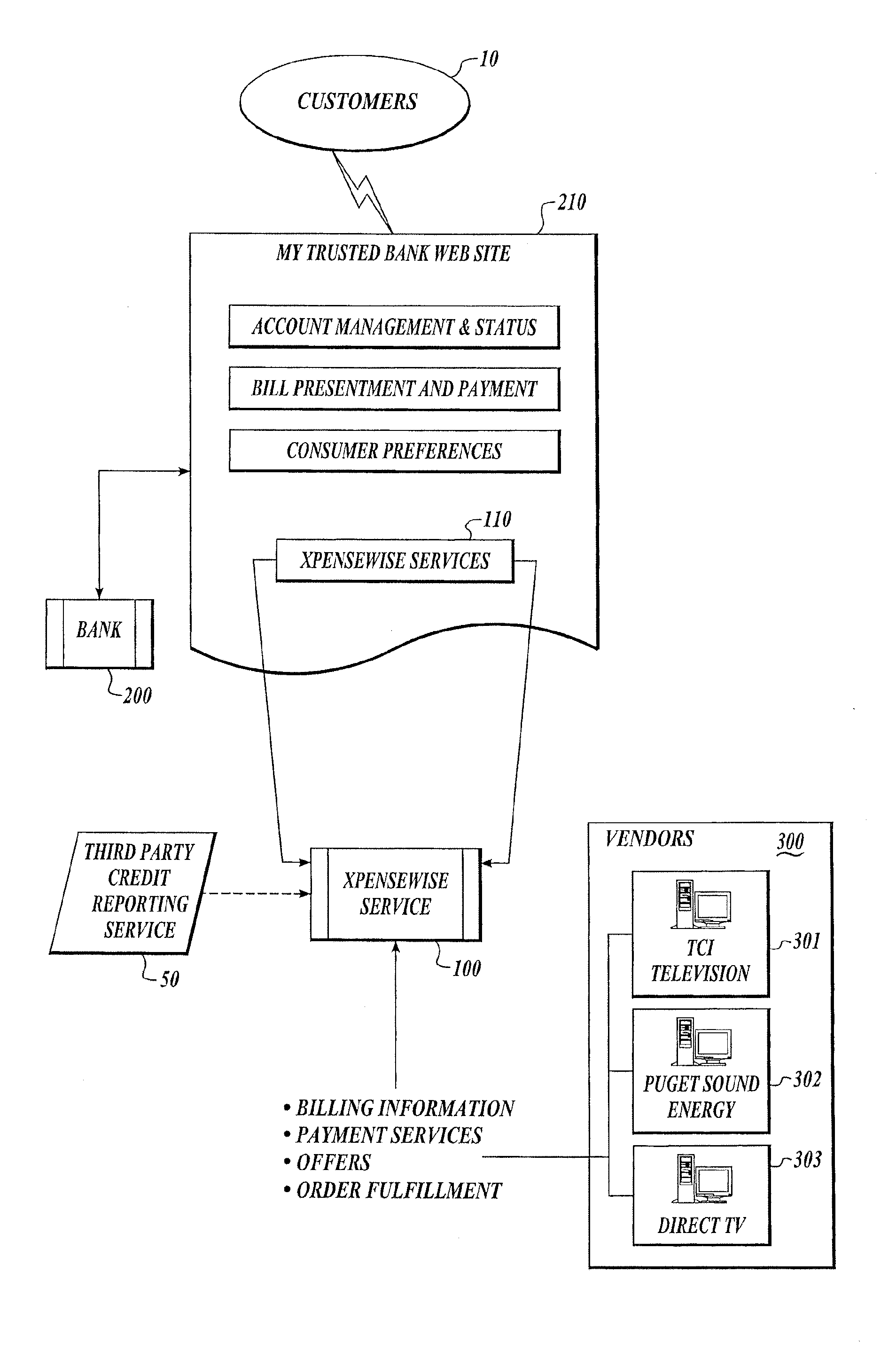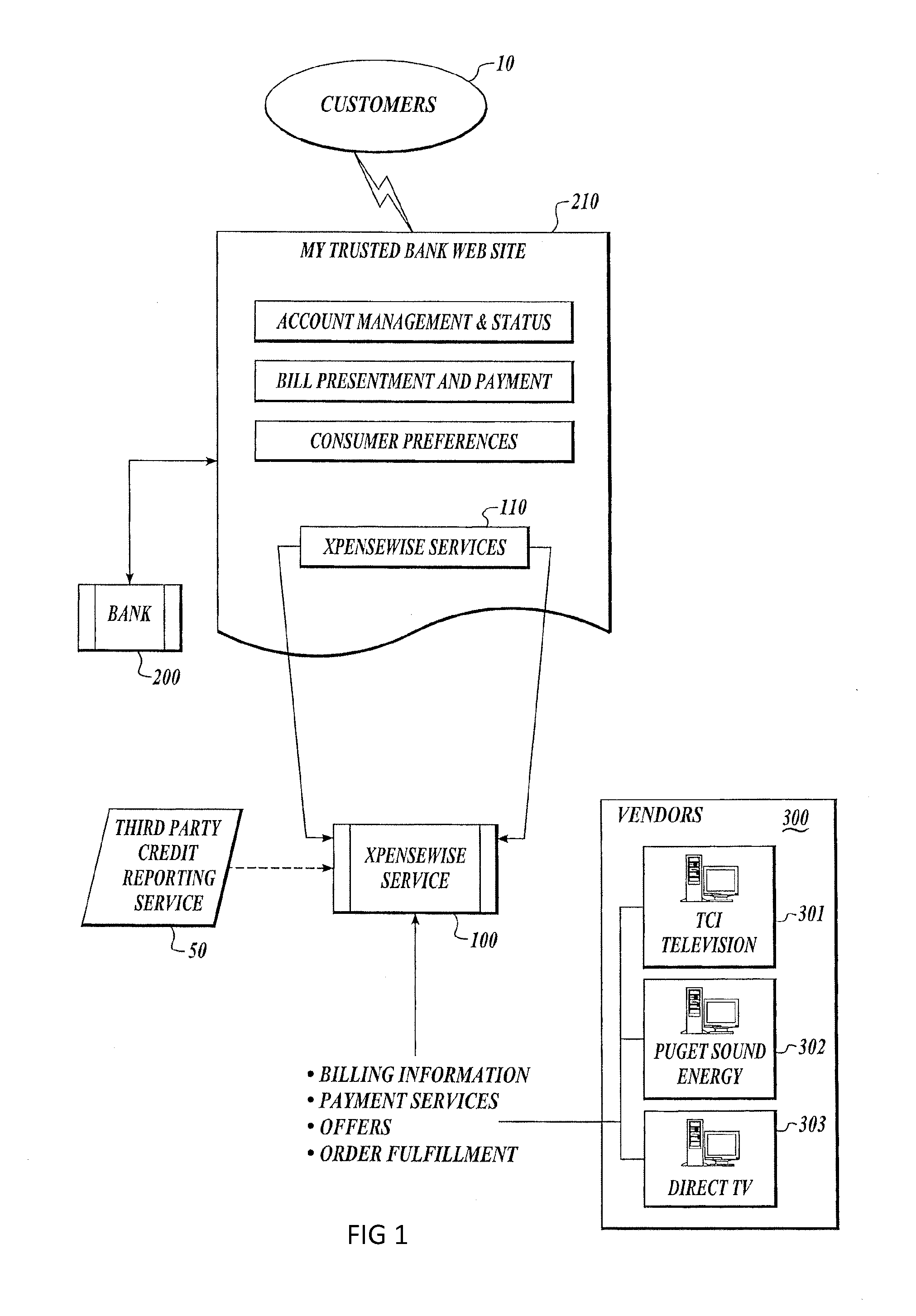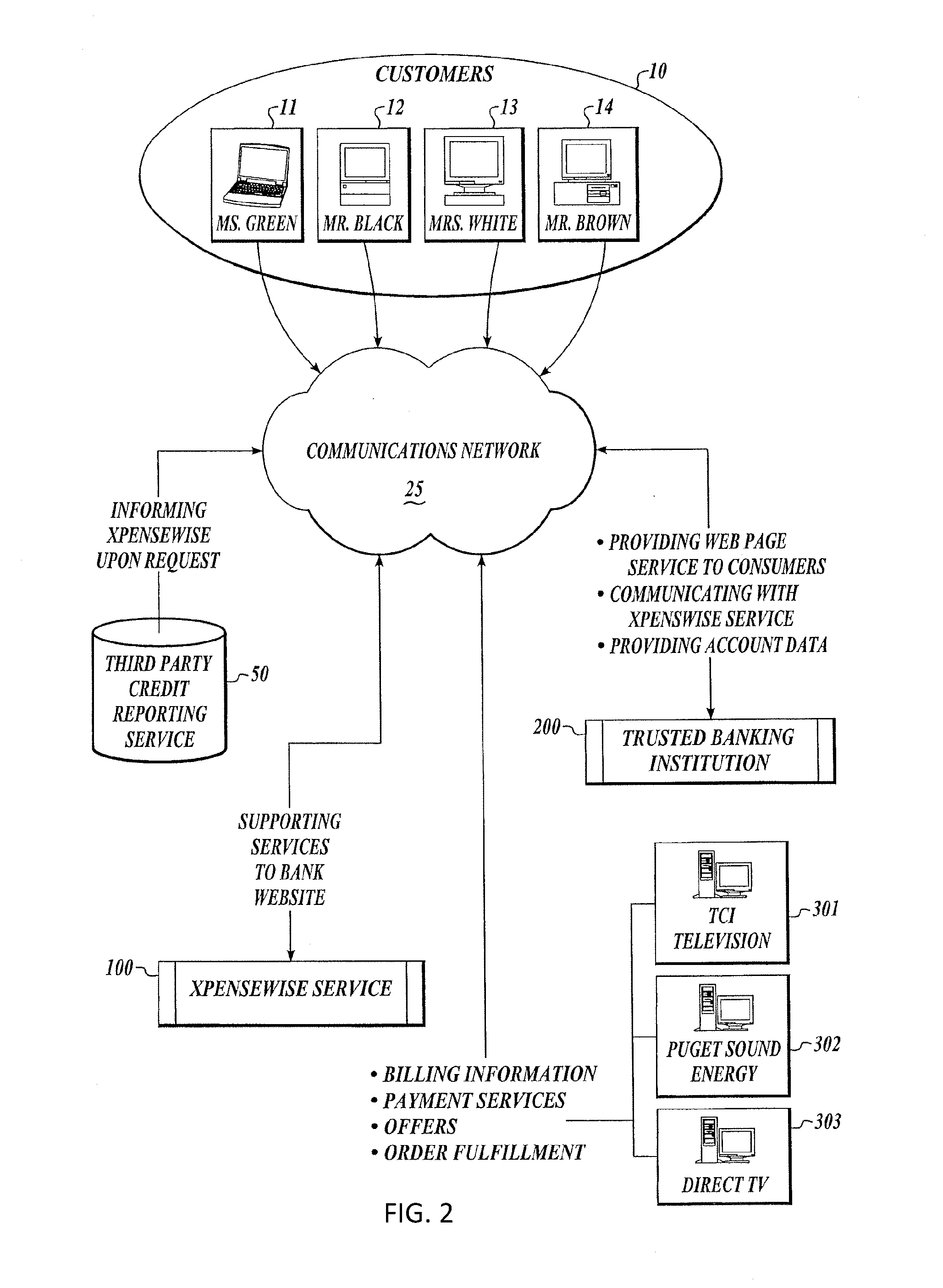System and method for dynamic price setting and facilitation of commercial transactions
a dynamic price and commercial transaction technology, applied in the field of system and method for dynamic price setting and commercial transaction facilitation, can solve the problems of inability to obtain, prohibitive cost, and inexact science aspect, and achieve the effects of greater market economy, greater accuracy, and greatest
- Summary
- Abstract
- Description
- Claims
- Application Information
AI Technical Summary
Benefits of technology
Problems solved by technology
Method used
Image
Examples
Embodiment Construction
[0078]For the purpose of this application, the term software is deemed to include instructions as to use.
[0079]According to the principles of this invention, certain limitations imposed by conventional pricing systems are eliminated allowing for a more fluid responsive micro-economy. A market, comprising customers of the inventive system (also referred to as Data Processing System or “DPS”), is observed closely in all of its purchasing activity. As a result of the knowledge garnered in that observation, the customers can purchase and the vendors can sell goods that comply with the customer's needs with great efficiency, Efficiencies in sales are realized in many ways, including the extremely competitive pricing strategies that vendors tailor to this market.
[0080]Referring to FIG. 1, while the DPS might be used in partnership with a credit card issuer, a consumer debit card account, a credit union, an electronic bill-paying service, or other similar service, such a partnership is not...
PUM
 Login to View More
Login to View More Abstract
Description
Claims
Application Information
 Login to View More
Login to View More - R&D
- Intellectual Property
- Life Sciences
- Materials
- Tech Scout
- Unparalleled Data Quality
- Higher Quality Content
- 60% Fewer Hallucinations
Browse by: Latest US Patents, China's latest patents, Technical Efficacy Thesaurus, Application Domain, Technology Topic, Popular Technical Reports.
© 2025 PatSnap. All rights reserved.Legal|Privacy policy|Modern Slavery Act Transparency Statement|Sitemap|About US| Contact US: help@patsnap.com



